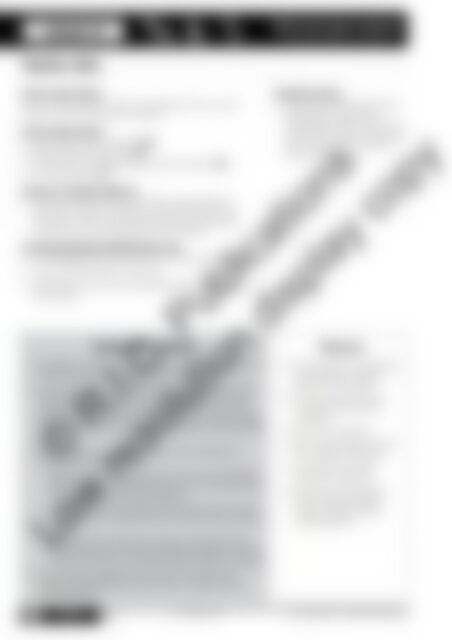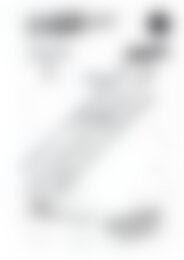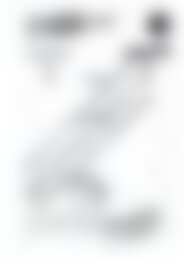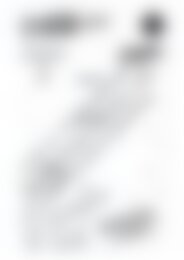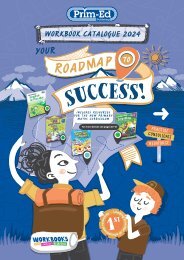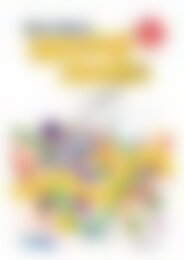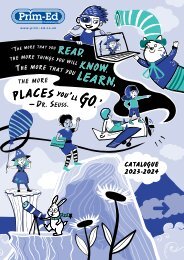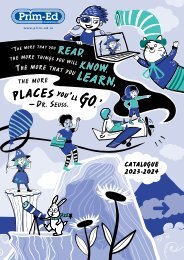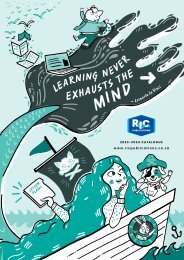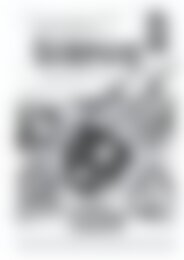6172RB Science a STEM approach Year 2 low res watermark
Create successful ePaper yourself
Turn your PDF publications into a flip-book with our unique Google optimized e-Paper software.
Lesson 6<br />
Earth and space sciences<br />
OUR RESOURCEFUL WORLD<br />
Teacher notes<br />
<strong>Science</strong> inquiry focus:<br />
How can we use Earth’s <strong>res</strong>ources wisely and how can we<br />
reduce, reuse and recycle our waste?<br />
<strong>Science</strong> Inquiry Skills:<br />
• Questioning and predicting QP<br />
• Planning and conducting PC<br />
• Processing and analysing data and information PA<br />
• Communicating C<br />
<strong>Science</strong> as a Human Endeavour:<br />
• Students identify how they can help conserve Earth’s<br />
<strong>res</strong>ources in their everyday lives by reducing their use<br />
of limited <strong>res</strong>ources, reusing and upcycling unwanted<br />
<strong>res</strong>ources, and recycling waste items correctly.<br />
Technology/Engineering/Mathematics links:<br />
• scanning QR codes using an iPad® to view online videos<br />
• using an iPad® to film an interview<br />
• participating in an online interactive activity to sort waste<br />
into groups<br />
Background information<br />
• Everything we do in our daily lives uses Earth’s <strong>res</strong>ources in<br />
either their natural or transformed state.<br />
• As human populations continue to expand exponentially,<br />
there is growing concern for how long Earth’s <strong>res</strong>ources<br />
will last. In recent years, the overuse of Earth’s <strong>res</strong>ources<br />
has been a major focus with concerns over climate change,<br />
defo<strong>res</strong>tation, <strong>res</strong>ource depletion and other environmental<br />
issues.<br />
• ‘Reduce, reuse, recycle’ has been a vital campaign for<br />
many years. It includes:<br />
— reducing our use of a <strong>res</strong>ource, such as turning off taps,<br />
lights and electronic devices when not in use and saying<br />
no to unnecessary plastic packaging<br />
— reusing <strong>res</strong>ources for different purposes, such as using<br />
an old phone as a digital camera or upcycling unwanted<br />
objects<br />
— recycling waste materials by giving unwanted clothes,<br />
toys and furniture to charity, placing recyclable materials<br />
in the correct bins and using old food scraps as compost<br />
• Some people suggest we need to do more than just<br />
reduce, reuse and recycle; see more at .<br />
Assessment focus:<br />
• Use students’ filmed interview<br />
segments to assess their<br />
knowledge of how humans can<br />
reduce their waste, reuse waste<br />
items and recycle correctly in<br />
their everyday lives.<br />
Resources<br />
• Online video—A story about<br />
sustainability at <br />
• Online video—Recycling<br />
at <br />
• A3 copy of page 98<br />
• One copy of pages 98 and<br />
99 (or 100) for each pair<br />
• One iPad® with a QR<br />
scanner for each pair<br />
• Online interactive game—<br />
City of Surrey – Rethink<br />
waste at <br />
© R.I.C. Publications<br />
Low <strong>res</strong>olution display copy<br />
96 <strong>Science</strong>:<br />
A <strong>STEM</strong> APPROACH<br />
YEAR<br />
2<br />
978-1-925431-95-7 R.I.C. Publications® – www.ricpublications.com.au


